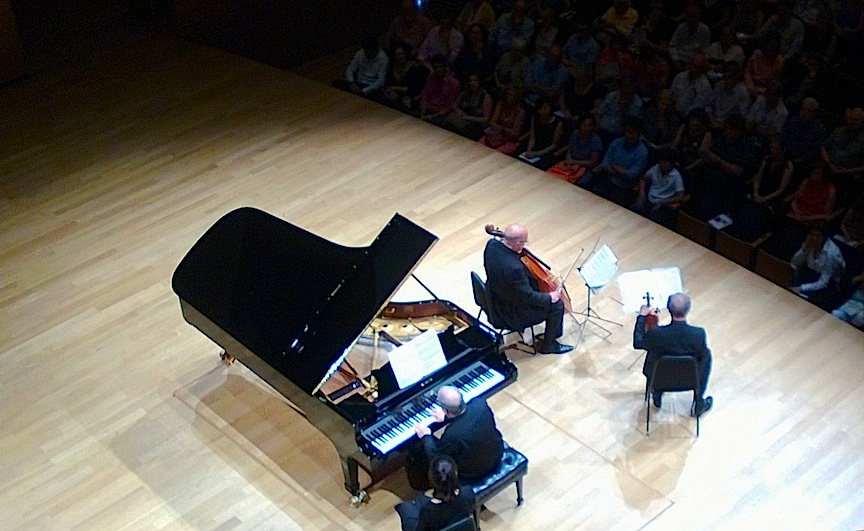
No two live performances are alike — and there’s no hard and fast recipe for what works and what doesn’t. But when musicians play as compellingly as Trio Pennetier Pasquier Pidoux did at Koerner Hall on Tuesday night, it helps to know what is behind the aural magic.
- Classical Music 101: What Does A Conductor Do? - June 17, 2019
- Classical Music 101 | What Does Period Instrument Mean? - May 6, 2019
- CLASSICAL MUSIC 101 | What Does It Mean To Be In Tune? - April 23, 2019
The three esteemed French visitors — pianist Jean-Claude Pennetier, violinist Régis Pasquier and cellist Roland Pidoux — were opening the eighth annual Toronto Summer Music Festival, a celebration of chamber music and art song involving top professionals and talented, advanced students that runs to Aug. 3.
Most of the veterans invited to perform in the main concert series also provide instruction or masterclasses during the day. If the others are as fine as Tuesday’s trio, the students are as fortunate as was the near-capacity crowd at Koerner Hall.
The focus of this year’s festival is on France’s Belle Époque — a gilded age that was a high point for the arts, letters and science that hadn’t been seen since the reign of Louis XIV.
From among the rich musical pickings, we heard Gabriel Fauré’s late D minor Piano Trio, Op. 120, completed in 1923, Maurice Ravel’s World War I-era Trio and, in an interesting programming twist that had nothing to do with France, Sergei Rachmaninov’s youthful Trio élégiaque, Op. 9, which he wrote in memory of Peter Ilytch Tchaikovsky in 1893.
These are three very different pieces of music that were approached in a very similar way by Tuesday’s musicians: Rather than pointedly emphasizing, say, the melodrama of the Rachmaninov, or the austerity of the Fauré trios, Pennetier, Pasquier and Pidoux made everything sound as if it were coming to life in an easy, unforced, natural way.
There were few sharp edges and many burnished curves. Pennetier’s playing was like liquid gold, while the string players’ bows turned into seamless silken sheets. The music came into being in a way similar to watching a flower come into bloom in stop-motion.
The effect was unaffected, natural — yet all of it calculated, researched, practised and, as the dog-eared pages of the Ravel and Fauré scores attested, performed over several decades.
The common purpose — an unforced beauty — was achieved. The Fauré became ethereal. The Ravel lost some of its insistence and the Rachmaninov, which so easily could be a vehicle for heavy-handed melodrama, sang and sparkled far more than its young composer could likely have imagined.
It’s a concert that everyone present is likely to remember fondly for a very long time. It was also a brilliant start to this year’s festival.
John Terauds
- Classical Music 101: What Does A Conductor Do? - June 17, 2019
- Classical Music 101 | What Does Period Instrument Mean? - May 6, 2019
- CLASSICAL MUSIC 101 | What Does It Mean To Be In Tune? - April 23, 2019



